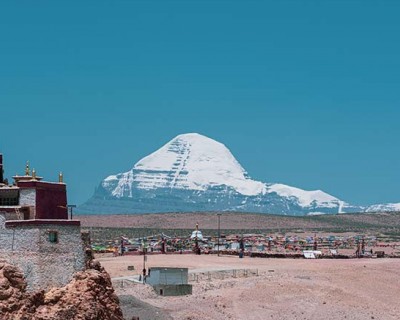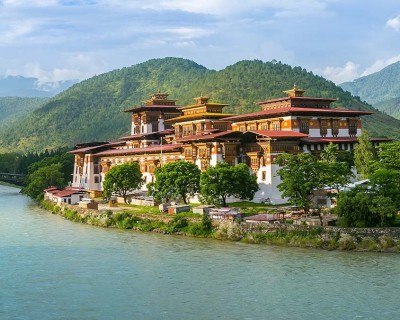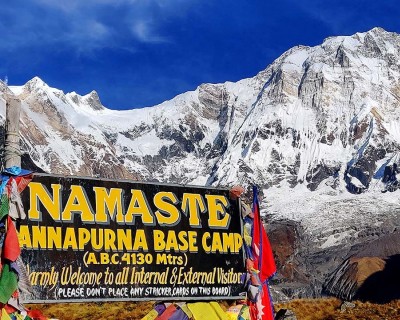We at “Marvel Adventure” provide this spectacular Langtang trek package at a reasonable price. Contact us to know more about the trip’s trek itinerary, cost, best time, difficulties, and other details. Happy Traveling!
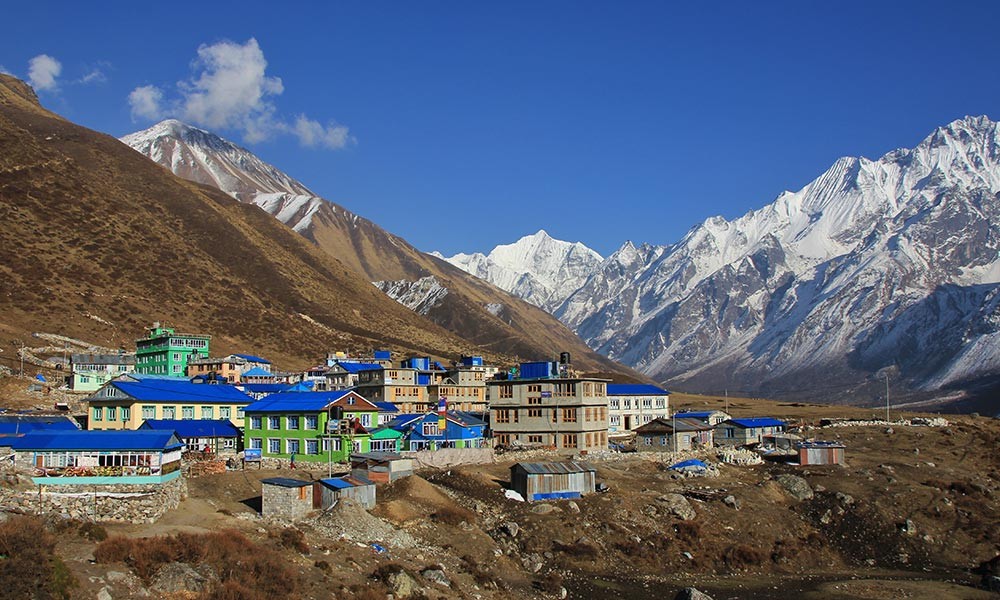
Things You Can Experience During the Trip
- Sweeping views of the snow-clad mountains in the region, including Langtang Lirung, Dorje Lakpa, Langtang Ri, Langshisha Ri, etc.
- Traveling through the diverse natural terrains of the area.
- Exploring the astonishing wildlife species, including red panda, wild monkeys, martens, black bears, and others.
- Passing through the lush vegetation, and alpine forests with rhododendron and bamboo trees
- Cultural exploration of various local settlements and Buddhist Heritages, including Kyanjin Gompa
- Warm welcome of the local people in the teahouses and lodges
Best Time for the Langtang Trek 7 Days
This high-altitude trek in the Langtang region is ideal in Spring and Autumn. These peak seasons will allow you to explore the beautiful area without discomfort. They will also allow you to trek the beautiful landscapes in all their glory. There are stable weather conditions and no weather disruptions. During these seasons, you will observe beautiful Himalayan landscapes in clear weather.
Spring season
The Spring season in the beautiful Himalayan landscapes is ideal for all kinds of adventure. During these seasons, you will observe the scenic vista of the silver Himalayas without any overcast conditions. You will get to observe the beautiful natural terrains of the region. These include glaciers, mountain passes, valleys, hills, waterfalls, and rivers.
Lush vegetation is all around the trails in the season, with flowers like rhododendron blooming. So you will also get to observe wild animals that are rare and endangered in the area as they remain active. The weather remains perfect, with temperatures suitable for trekking. Hence, spring is generally considered the best time for 7 days Langtang Valley Trekking and other Himalayan region treks.
Autumn season
Autumn is generally considered the second-best time for any trekking adventure in the Langtang region. This season provides travelers with soothing weather and fewer weather-related challenges like landslides and avalanches. Trekkers can observe the sweeping views of the mountains in a clear blue sky during this season.
The temperatures remain moderate, making them perfect for all trekking adventures. An added benefit of trekking this season is the amount of cultural exploration you can do in the region. This is because there is a festive environment in this season. Trekkers will therefore have the opportunity to interact with the locals and celebrate the local festivities.
Off-season treks
In the off-season of the winter and summer monsoon, you will experience different weather-related challenges. Weather-related challenges include heavy rainfall, snowfall, frigid conditions, and others. Due to these extreme weather conditions, you will experience challenges like landslides, avalanches, soil erosion, etc.
Besides that, the snow-capped mountains mostly remain covered in clouds. There are overcast conditions throughout the seasons. Slippery leech-infested trails increase the chances of cramps, injuries, altitude sickness, and other challenges.
The Difficulty of the Langtang Trek 7 Days
The high-altitude 7 days Langtang Trekking is a moderately difficult trek. The top difficulty includes the rugged terrain that requires you to move uphill and downhill at regular intervals. Trekkers will need to be in the best physical and mental shape to complete various trek sections.
The trail is a long one that constantly passes through natural trains like rivers, hills, mountain passes, glaciers, etc. a proper training regime, including physical, cardiovascular, and mental exercises, will allow you to travel without discomfort. The other challenges in the region include unpredictable weather at a higher altitude.
Weather conditions app white challenging as they will provide you with various weather-related challenges in the region. The weather remains unpredictable and can change within a few hours. You can experience overcast heavy rainfall from sunny conditions in a quick time. Hence, trekkers must prepare for the trek well, even during peak season.
Trekkers need to manage to stay in local tea houses and lodges, which do not have many facilities. Since food ingredients need to get transported, the costs are high. The variety of the menu is also quite limited in these high-altitude regions. Altitude sickness is quite common at high altitudes due to the minimal oxygen levels and air pressure. Hence, you should acclimate, hydrate, and rest well during the trek.
Besides that, you will also face challenges like cultural and language barriers along the trail. However, you will not face such issues if you have a professional guide. They will also help you navigate and keep you safe along the route.
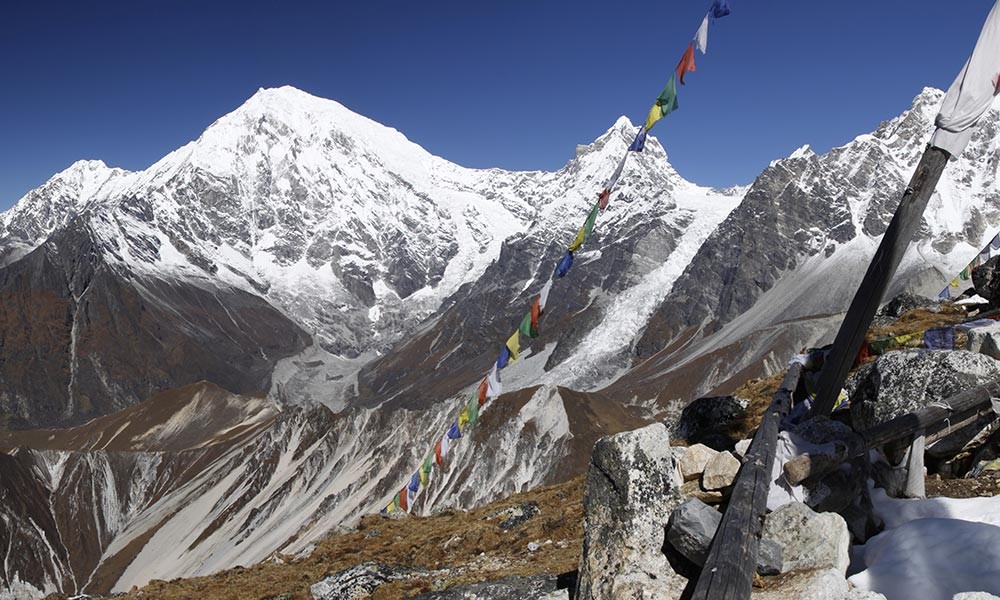
Detailed Itinerary - Langtang Trek 7 Days
Day 1: Drive to Syabrubesi
Syabrubesi altitude: 2380m
Drive duration: 7-8 hrs
Overnight: Syabrubesi
The trail of the 7 days Langtang Trek starts with the scenic drive to Syabrubesi. Trekkers will travel through the picturesque landscapes of the hilly region. The views of the beautiful hills, white water rapids, and other natural landmarks are pretty enchanting.
The trails also provide you with stunning views of the snow-clad mountains. Our day’s destination is Syabrubesi, the entry point of Langtang region treks. After arriving at the destination of Syabrubesi, you will spend the night at the lodge. You can explore the beautiful area in Syabrubesi and prepare for the next day’s trek.
Day 2: Trek to Lama hotel
Lama hotel altitude: 2470m
Trek duration: 5-6 hrs
Overnight: Lama Hotel
The trail on this trekking day starts from Syabrubesi to Lama Hotel. Lama hotel is a beautiful landmark along the routes to the Langtang region. This incredible trek begins as you have your breakfast in the lodge.
The trail of the 7 days Langtang Valley Trek passes alongside the Langtang River. The trekkers will pass the river through the region’s suspension bridges. The course moves uphill and downhill in the area to arrive at the settlement of Bamboo (1960m). The beautiful terrains will pass through the forested areas with many bamboo plants.
There is gorgeous lush vegetation along the trail, with many rhododendron trees. Many rare and endangered wildlife includes red panda, wild monkeys, martens, black bears, and others. You will then proceed towards the beautiful destination of Rimsha (2400m). Finally, continuing our journey through the cultural settlements, we arrive at Lama Hotel (2420m). There you will rest and stay at a lodge for the night.
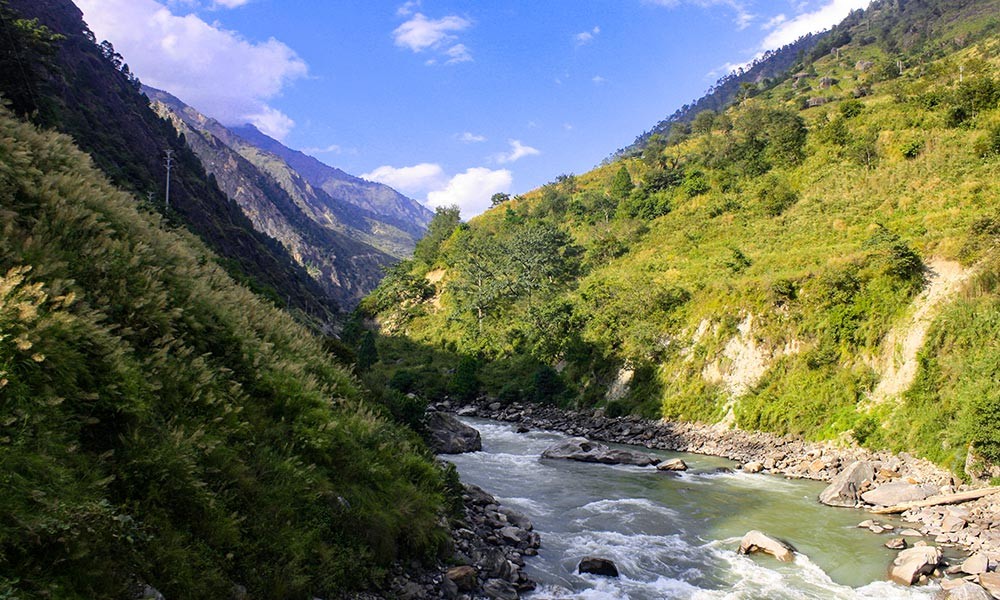
Day 3: Trek to Langtang
Langtang altitude: 2980m
Trek duration: 5-6 hrs
Overnight: Langtang
On this day, we will pass through the beautiful terrains that will take you to the beautiful village of Langtang. This section of the trek requires quite an uphill climb in the region. There is a forested area along the trail where you can pass through the rhododendron trees.
The trails take you alongside the Langtang River, from where you will arrive at the settlement of Gumanchok, which is traditionally a horse stable. There you can find the Yak grazing sites, where you can find yaks grazing. Mt. Langtang (7246m) looks stunning from the trail’s viewpoint.
The beautiful trails will take you through the several water streams in the region. You can also find the beautiful watermills and prayer wheels in the area as you trek to the Langtang village. The beautiful Langtang village (3307m) is famous for its Himalayan vista.
There are different Tibetan cultural settlements in the village, along with Buddhist landmarks. The beautiful stone-paved, flat-tiled houses are the other attractions of the region. The region has wheat, barley, buckwheat, and other crops. You can find tea houses and many local accommodations in the Tamang community. You will then rest overnight at the local teahouse.
Day 4: Trek to Kyanjin Gompa
Kyanjin Gompa altitude: 3860m
Trek duration: 5-6 hrs
On this trek section, you will continue your journey through the beautiful terrains to arrive at Kyanjin Gompa. This is the trek’s highest point, and you must acclimate and drink large amounts of water to tackle altitude sickness. You will pass through the beautiful courses of yak pasture land to arrive at the destination.
You can observe the spectacular views of the snow-clad mountains of the region, including Mt. Langtang, Mt Ganchempo, and others. The beautiful trail will take you through the various religious landmarks of the chortens, prayer flags, and mani walls.
There is also a cheese factory in the area where you can go to taste the Yak cheese and other dairy products. The monastery region remains surrounded by the snow-clad mountains of the region. There are many other Buddhist landmarks in the area. You can explore around the region and then rest overnight at the teahouse.
Day 5: Hike to Tsergo Ri and Trek down to Lama hotel
Tsergo Ri altitude: 5033m
Lama hotel altitude: 2470m
Trek duration: 6-7 hrs
Overnight: Lama Hotel
This is quite an exciting section of the trek in the Langtang region. The beautiful terrains on the course of this section are quite challenging as you hike up to the Tsergo Ri. The trail passes through the gorgeous landscapes where you can travel while observing the snow-capped mountains.
Finally, you descend to Lama Hotel (2500m) after achieving this feat and exploring the beautiful terrains. After passing through the same route you took earlier through the settlements, you will finally arrive at the Lama Hotel. After arriving at the destination, you will spend the night at the lodge.
Day 6: Trek to Syabrubesi
Lama hotel altitude: 2470m
Trek duration: 4-5 hrs
Overnight: Syabrubesi
On this section of the Langtang Trek 7 days, you will trek down to Syabrubesi. The scenic trail then passes through the beautiful terrains to arrive at the picturesque landscapes.
The short duration of the trek only takes around 4 to 5 hours. You can explore the beautiful rural settlements for the last time as you finally arrive at the settlements of Syabrubesi. You can rest and explore the region after arriving at your destination.
Day 7: Drive back to Kathmandu
Syabrubesi altitude: 2380m
Drive duration: 6-7 hrs
The Langtang Trek 7 days ends on this day as you will take the scenic drive from Syabrubesi to Kathmandu. You will follow the trail that you took earlier. The picturesque hilly region vista will enchant you along the route as you arrive at the city of Kathmandu.
After driving for 6-7 hours, you will finally arrive at the city of Kathmandu. You can also explore around the Thamel area, celebrating the successful completion of the tour.
Langtang Trek 7 Days Cost
The 7 days Langtang Trek cost around US$ 675 per person. The trek package includes various costs like meals, accommodations, guides, porters, etc. The accommodation in the region is around US$5 - US$7 per night in the local teahouses. The professional guides in the area cost around US$ 25 to US$ 30 per day, and porters cost around US$ 15 to US$ 20.
The food costs in the region are relatively high as they need to get transported with the help of donkeys, yaks, and porters. You will get free accommodation at most teahouses if you eat at the same place. To be safe along the trail, you should also carry extra cash, $15-$20 per day. You can separate some cash for personal shopping, tipping costs, and other extra facilities along the trail.
Food and Accommodation
The higher altitude takes you through the remote terrains, where you will not find many hotels. You will have to manage small lodges and teahouses in the region. These accommodation facilities provide basic meals and stay facilities.
While the menu in the area is not varied, you will find a warm meal and a nice place to sleep during freezing nights. You stay in a room where you will find mattresses, pillows, and blankets. You can carry your extra sleeping bag if you find it necessary as there might be extreme frigid weather conditions.
You might need to share a room with other trekkers or even sleep in the dining area in packed conditions. The food facilities along the trail include Nepalese dishes of rice, pulses, and cereals, also known as Dal Bhat. There are also side dishes of vegetables, lentils, pickles, meat, and others.
There are other meal varieties, including momo, Chaumin, noodles, pasta, etc. During the trekking journey, you can also have snacks like dry fruits, protein bars, chocolate bars, etc. Hot beverages like tea, coffee, and other hot drinks are quite popular in the high-altitude region.
You can also carry your coffee powder, tea bags, etc., to save costs. It is not safe to drink directly from the taps. Therefore, you should always boil or use water purification tablets before drinking. Hence, these are the various meal and accommodation facilities in the region.





